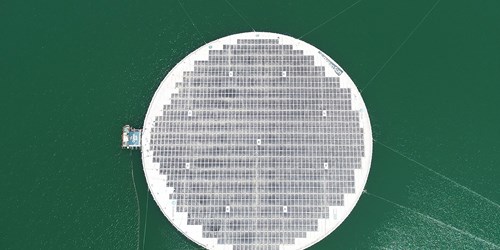
The government of Kosovo has approved the draft Energy Strategy 2022-2031 to enable the energy sector to serve as a tool for the country’s economic growth and increase opportunities for businesses and the employment of young people
The new strategy does not foresee the construction of any more hydropower plants, based on the outcomes of previous projects, said Economy Minister Artane Rizvanolli, adding that the energy sector is quite complex and faces many challenges, with the war in Ukraine only worsening the situation.
“The Energy Strategy 2022-2031 establishes the long-term orientations of the development of the energy sector, lays the foundations for a new, cleaner energy sector with efficiencies and a sector where citizens are more involved, be active participants, whether through self-consumption, either through better information and being able to make the right decisions for saving energy,” she added.
But the new focus on renewables will not lean on hydropower, a popular but controversial type of energy generation in the region.
“Taking into account the limited water resources we have as a state and the environmental damage that has been done with existing projects, the Strategy currently does not foresee new hydropower plants, but we do not exclude the possibility that after the Ministry of Environment has made a development plan for the water sector, if it is possible to build water capacities, this will be examined, but only at a moment when we are sure that this is in accordance with the environmental objectives”, said Rizvanolli.
Meanwhile, Prime Minister Albin Kurti has emphasised that the Strategy aims to develop a sustainable energy sector integrated into the pan-European market that guarantees the security of energy supply and affordability for citizens.
“Today, we have one of the most important documents this year, the Energy Strategy 2022-2023. Ensuring a reliable supply of affordable and clean electricity is essential for the economic development and social well-being of Kosovo,” he said.
“This strategy envisages rapid and convincing developments in the energy sector. The strategy aims to develop a sustainable energy sector, integrated into the pan-European market that guarantees the security of energy supply and affordability for citizens”, he added.
The strategy envisages that by the end of 2031, 1,600 MGW of energy capacity will be installed from renewable sources. However, the government also acknowledged that it is necessary to invest in coal capacity to increase supply security in the short term, as well as a potential investment in a natural gas power plant in Albania.

